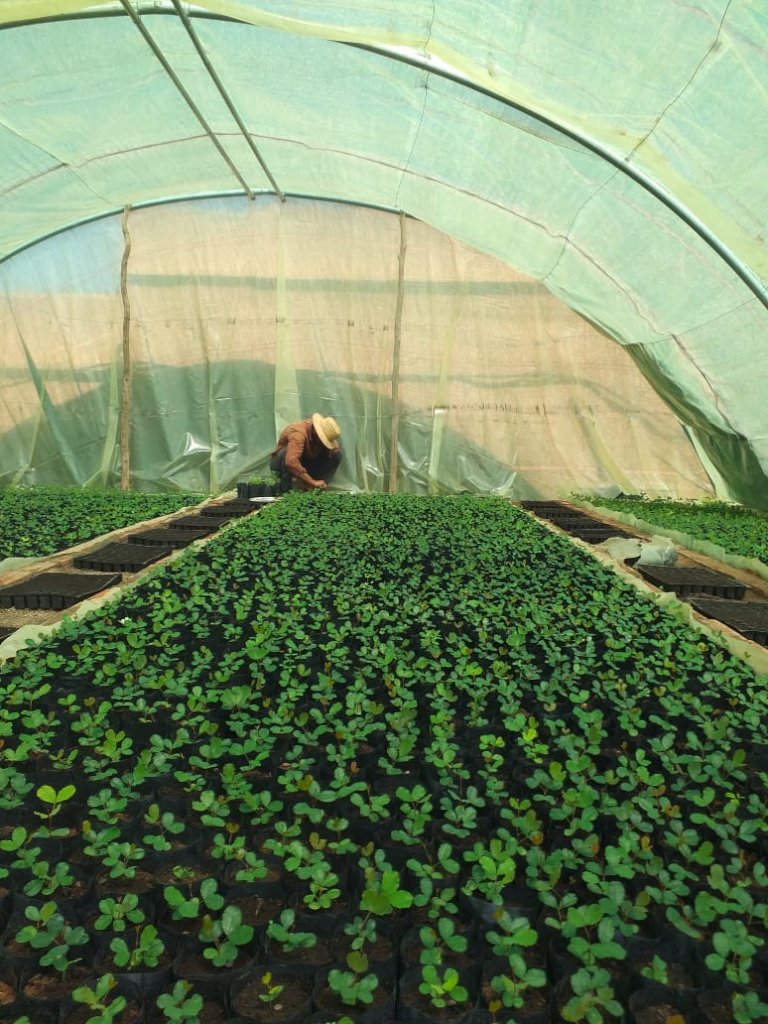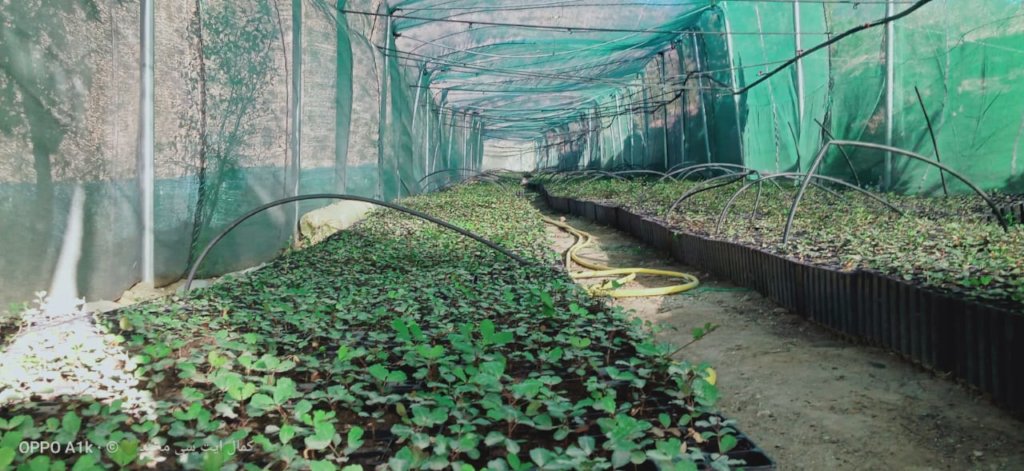By Finn Grundmann | HAF Program Manager
A wrinkled tree Analogy
To care for the people or for your own wellbeing is by no means a contradiction to protecting the environment. While conventional agriculture ensures efficient food production, it still risks the health of many billion people by polluting ground waters, emitting CO2 and further reducing overall biodiversity. But strikingly, the dichotomy between health and nourishment is truly fictional. Morocco is restoring ecosystems in sections of the country, as they strive to manage food production as a means to promote people’s health. Indirectly, by restoring ground water levels through sustainable farming practices, but also by reconnecting with traditional knowledge on pharmaceutical uses of native species.
It is millions of years of experience that today allows Ceratonia, also known as the carob tree, to lead by example, bluntly, and simply through its existence in Morocco. It is a trunk, like two wrinkly old arms that stretch into the hot air of a Moroccan summer. Even through dramatic heatwaves and the live-threatening challenges that climate change has confronted the people and nature with this tree shows resistance and has become a symbol of endurance and hope. Being in the family of Fabaceae this tree has a unique partnership with underground bacteria that live in root nodules incorporated into the tree’s physiology. They have throughout evolution perfected their partnership, where Rhizobacteria suck Nitrogen out of the air feeding it to the tree, while leaking some into the surrounding soil. The cooperation of these highly distinct organisms has allowed carob to grow in nutrient poor, eroded soils providing bean-like pods to feed on for a variety of animals, including humans. These characteristics has made carob a pioneer in ecosystem restoration, enriching soils with nutrients and providing habitat structure for unique ecosystems to re-establish in the Essaouira Region.
While carob powder has recently resurfaced on the global market, substituting products all the way from cacao powder, to protein bars, the unknown facet of carob pods lies hidden in the tree’s appearance. Through molecular analysis of the pod’s composition by the U.S. Department of Agriculture significant amounts of Vitamin E, B12, and K were found to make the carob powder a potential candidate for dermatological skin care products. The anti-oxidative effect of Vitamin E, together with antibacterial properties of the pod’s tannins make the carob extract a proven treat and therapeutic for wrinkled skin and skin-related diseases. The benefits of application were studied and verified in the Journal of the American Academy of Dermatology (2018). It surprising how one tree alone can nurture the soil, protect the climate, promote diversity, and invigorate our skin.
To care for yourself and for your own health means to care for the environment! This example is just one out of many that demonstrate how closely connected and how deeply dependent we are on nature. It shows how maintaining a thriving environment will provide solutions for future problems whether climate related, related to our own wellbeing or political dilemmas like the one created between agricultural efficiency and human health.
A common saying goes “an apple a day keeps the doctor away”, which demonstrates so clearly that our health and our own well-being depends on the goods nature provides. But really, I believe that the saying lacks a crucial component, a second part that acknowledges the need for future generations to stay healthy just like we do. I encourage you to eat that apple a day, to keep the doctor away, to plant a carob a week to create the future your children seek, to grow a forest a year to clean the worlds atmosphere… Let us demonstrate together; We can do better! With your help, we plant a carob a day.
Project reports on GlobalGiving are posted directly to globalgiving.org by Project Leaders as they are completed, generally every 3-4 months. To protect the integrity of these documents, GlobalGiving does not alter them; therefore you may find some language or formatting issues.
If you donate to this project or have donated to this project, you can receive an email when this project posts a report. You can also subscribe for reports without donating.
Support this important cause by creating a personalized fundraising page.
Start a Fundraiser
